Terrorism and mass attacks in Canada includes acts of terrorism, as well as mass shootings, vehicle-ramming attacks, mass stabbings, and other such acts committed in Canada that people may associate with terroristic tactics but have not been classified as terrorism by the Canadian legal system.
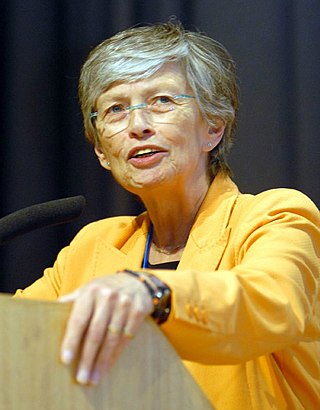
Carol Bellamy is an American nonprofit executive and former politician. She is chair of the board of the Global Community Engagement and Resilience Fund (GCERF). Previously, she was director of the Peace Corps, executive director of the United Nations Children's Fund (UNICEF), and president and CEO of World Learning. She is also the chair of children's rights advocacy organization ECPAT International, working to end the sexual exploitation of children. After three terms in the New York State Senate, she was the first woman to be elected to any citywide office in NYC as President of the New York City Council, a position she held until her unsuccessful bid for Mayor of New York in 1985; she was the second to last person to hold this position.

The Global Fund to Fight AIDS, Tuberculosis and Malaria is an international financing and partnership organization that aims to "attract, leverage and invest additional resources to end the epidemics of HIV/AIDS, tuberculosis and malaria to support attainment of the Sustainable Development Goals established by the United Nations". This multistakeholder international organization maintains its secretariat in Geneva, Switzerland. The organization began operations in January 2002. Microsoft founder Bill Gates was one of the first donors to provide seed money for the partnership. From January 2006 it has benefited from certain US Privileges, Exemptions, and Immunities under executive order 13395, which conferred International Organizations Immunities Act status on it.
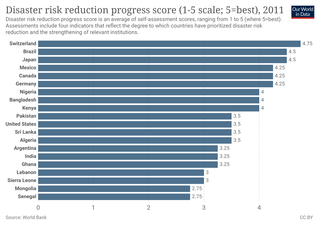
Disaster risk reduction (DRR) is an approach for planning and taking steps to make disasters less likely to happen, and less damaging when they do happen. DRR aims to make communities stronger and better prepared to handle disasters. When DRR is successful, it decreases the vulnerability of communities because it mitigates the effects of disasters. This means DRR can reduce the severity and number of risky events. Since climate change can increase climate hazards, DRR and climate change adaptation are often looked at together in development efforts.

The Salafist Group for Preaching and Combat, known by the French acronym GSPC, was an Algerian islamist terrorist faction in the Algerian Civil War founded in 1998 by Hassan Hattab, a former regional commander of the Armed Islamic Group (GIA). After Hattab was ousted from the organization in 2003, the group officially pledged support for al-Qaeda, and in January 2007, the group officially changed its name to the "Al-Qaeda Organization in the Islamic Maghreb" (AQIM).
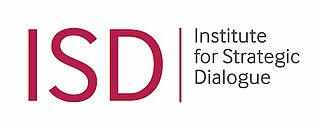
The Institute for Strategic Dialogue (ISD) is a political advocacy organization founded in 2006 by Sasha Havlicek and George Weidenfeld and headquartered in London, United Kingdom.
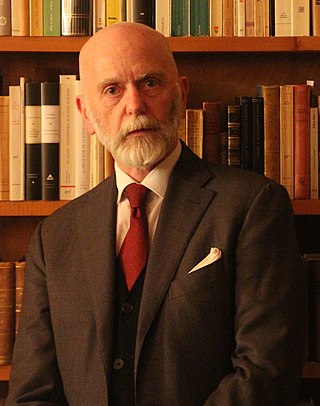
Renaud Camus is a French novelist, conspiracy theorist, and white nationalist writer. He is the inventor of the "Great Replacement", a far-right conspiracy theory that claims that a "global elite" is colluding against the white population of Europe to replace them with non-European peoples.

Chad–France relations are the diplomatic relations between the Republic of Chad and the French Republic. France controlled Chad from 1900 until the country's independence in 1960. Both nations are today members of the Francophonie and the United Nations.

Mohamed Mahmoud Ould Mohamedou is a political historian and public intellectual. A Harvard University academic, Mohamedou is Professor of International History and Politics at the Graduate Institute of International and Development Studies in Geneva. of which he is deputy director. His work focuses on political violence, state-building, racism, and the history of international relations.
Dr. Edit Schlaffer, is a social scientist and the founder of Women Without Borders, based in Vienna, Austria. Her international efforts focus on grassroots, community-based female diplomacy, namely empowering women as agents of change and a critical driving force in stabilizing an insecure world.
Chaïm Nissim was an ecological activist and militant, and a Green politician. He was the perpetrator of a rocket attack on the Superphénix nuclear plant, on 18 January 1982.

The Global Center on Cooperative Security is an independent, nonpartisan, not-for-profit research and policy institute based in New York, Washington D.C., London, Brussels, and Nairobi. The Global Center works to improve multilateral security cooperation through policy research and issue-area projects throughout the world.
The Global Counterterrorism Forum is an informal, apolitical, multilateral counter-terrorism platform that was launched officially in New York on 22 September 2011.
Thomas Gass is a Swiss diplomat who currently serves as Ambassador of Switzerland to the Socialist Republic of Viet Nam.

Violent extremism is a form of extremism that condones and enacts violence with ideological or deliberate intent, such as religious or political violence. Violent extremist views often conflate with religious and political violence, and can manifest in connection with a range of issues, including politics, religion, and gender relations.

Terrorism in France refers to the terrorist attacks that have targeted the country and its population during the 20th and 21st centuries. Terrorism, in this case is much related to the country's history, international affairs and political approach. Legislation has been set up by lawmakers to fight terrorism in France.
Jean Claude Gandur is a French-born Swiss businessman, philanthropist and art collector.
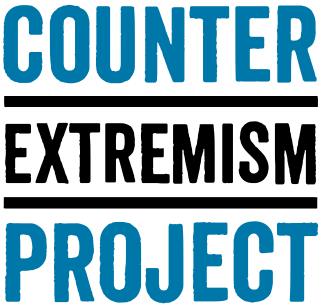
The Counter Extremism Project (CEP) is a non-profit non-governmental organization that combats extremist groups "by pressuring financial support networks, countering the narrative of extremists and their online recruitment, and advocating for strong laws, policies and regulations".

The Law on the fight against terrorism, abbreviated LCT, is a 2006 French counter-terrorism legislation designed to improve state security and strengthen border control. The legislation was passed on 23 January 2006 under the leadership of Nicolas Sarkozy, then the Minister of the Interior. Notably the law increased punitive measures for criminal association and gave the government more power to access personal information online.

The Tony Blair Institute (TBI), commonly known by its trade name the Tony Blair Institute for Global Change, is a non-profit organisation set up by former UK Prime Minister Tony Blair.














